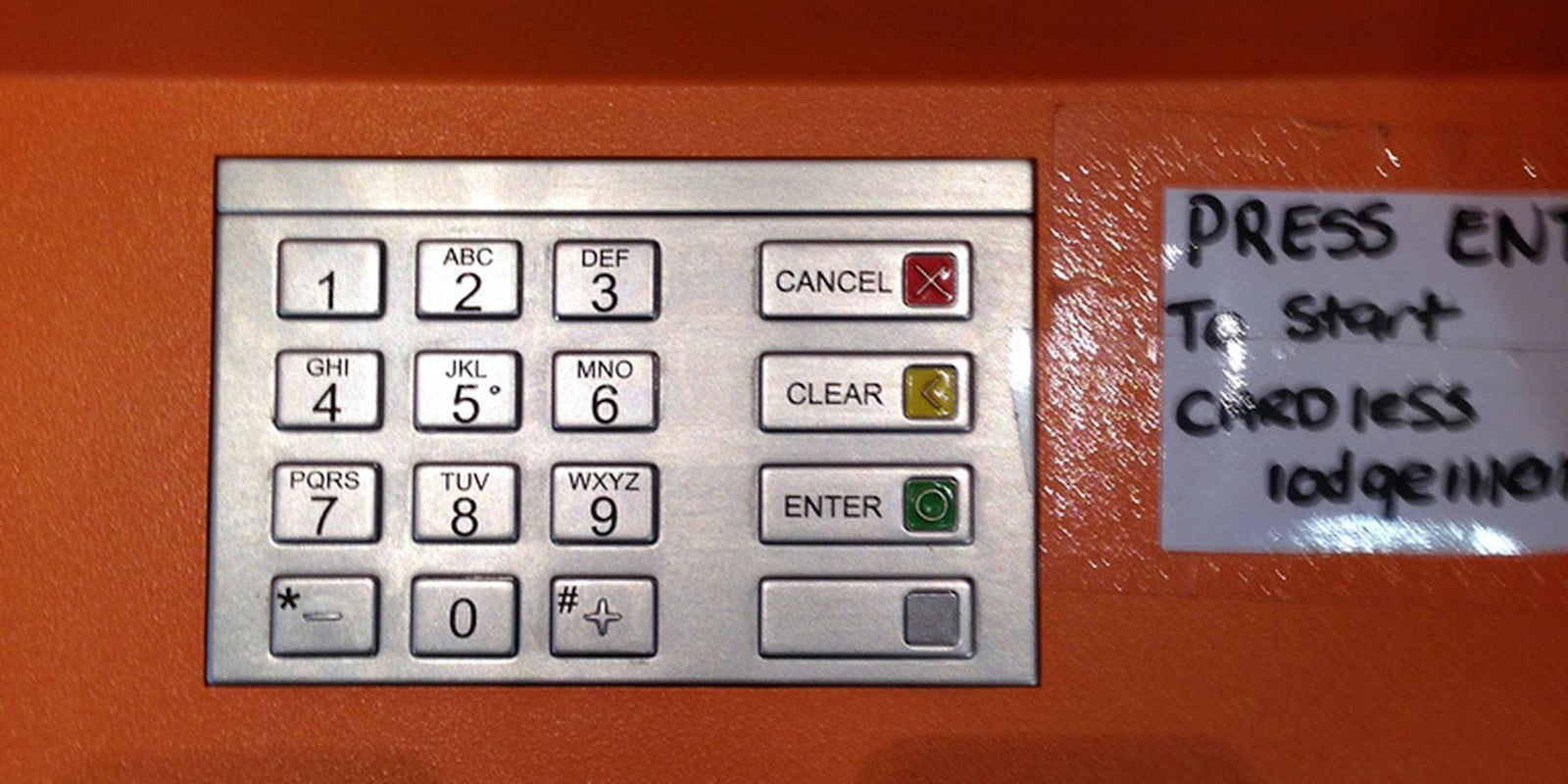A recent streak of multimillion-dollar bank heists keeps getting longer.
Hackers exploited a flaw in a global money-transfer system to steal $9 million from Ecuador’s Banco del Austro in January 2015, according to a lawsuit made public Thursday night and first reported by the Wall Street Journal.
Of the $12 million that was fraudulently transferred out of the Ecuadorian bank, $2.8 million of it was recovered. Legal action continues to retrieve more of the money from Hong Kong, where it was transferred after the theft. It’s not clear where the money went next.
At the heart of the Ecuadorian heist, and previously disclosed thefts at a Bangladeshi bank and another institution, is the Society for Worldwide Interbank Financial Telecommunication (SWIFT), the global network through which thousands of international banks send each other money-transfer orders.
Concerns about the global financial system’s ability to resist cyberattacks are escalating, especially because SWIFT did not detect the intrusions. Hackers also tried and failed to exploit the system to steal from a Vietnamese bank in December.
Banco del Austro is suing Wells Fargo in a federal district court in New York for not seeing “red flags” in at least 12 transactions from January 2015 that transferred $12 million out of it.
“For each of the unauthorized transfers, an unauthorized user, using the Internet, hacked into BDA’s computer system after hours using malware that allowed remote access, logged onto the Swift network purporting to be BDA, and redirected transactions to new beneficiaries with new amounts,” the lawsuit alleges.
Wells Fargo is attempting to have the suit thrown out. It has dismissed the banks claims, arguing that financial firms cannot vet transfers to the extent that the Ecuadorians have claimed.
Additionally, Wells Fargo and SWIFT argue that it was the bank’s own security failures that allowed hackers to acquire its SWIFT login credentials. SWIFT made the same argument in the Bangladeshi case.
A SWIFT spokeswoman told the Wall Street Journal that the firm was never informed of the Ecuadorian hack and urged SWIFT customers to report frauds in order to strengthen the global financial system’s defenses.
It remains unclear whether the same hackers conducted all three attacks, but the similarities have many observers connecting the dots. All the attackers targeted SWIFT through the banks’ customer portals and commenced operations after the banks’ normal business hours.
It is also unclear if other banks are currently being digitally pillaged.
John Doyle, a senior executive at SWIFT until 2005, told Reuters that SWIFT can’t replace secure banking and that it can’t always know about every hack. Banks care too much about customer confidence, he said, to squander it by reporting every incident to SWIFT.
Nevertheless, SWIFT is urging its member banks to not keep multimillion-dollar hacks secret.
“The security of our global financial community can only be ensured through a collaborative approach,” the company told banks. “To this end, it is essential that you share critical security information related to [SWIFT] with us.”
